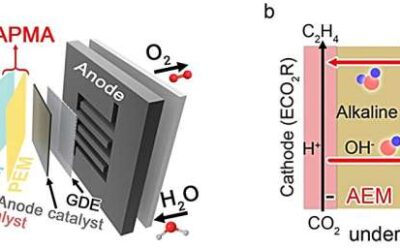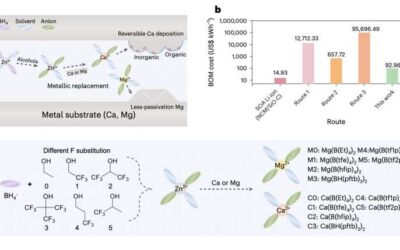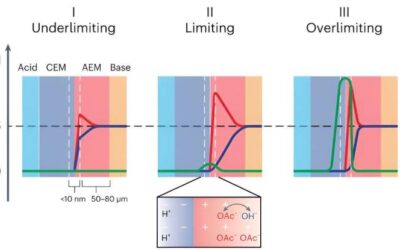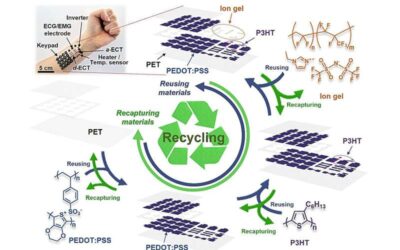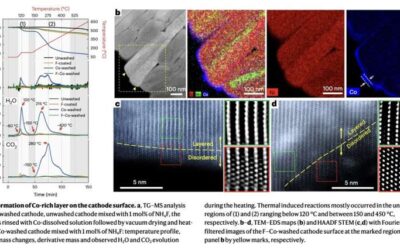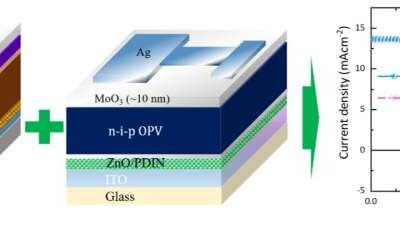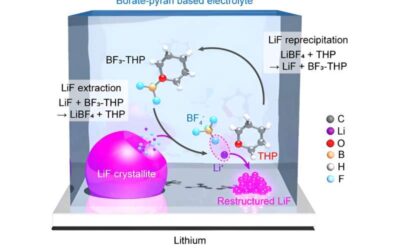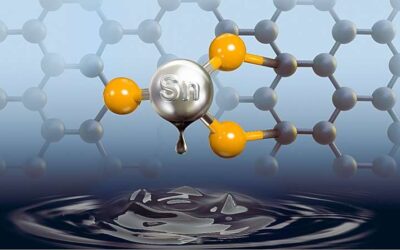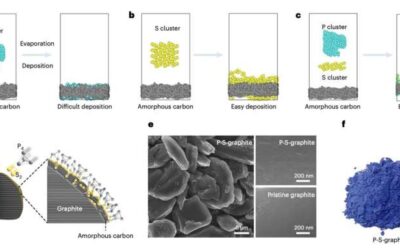The sustainably powered, electrochemical reduction of carbon dioxide (CO2) into useful chemicals and feedstock could help to mitigate greenhouse gas emissions, allowing industries to reuse released CO2 in beneficial ways. Most of the strategies for realizing this...
Energy & Green Tech
A cation replacement method to realize highly performing electrolytes for multivalent metal batteries
As the use of electric and hybrid vehicles increases in many countries worldwide, the development of safe and better-performing battery technologies becomes increasingly crucial. Most notably, engineers have been trying to increase the safety and energy capacity of...
Model outlines how ionic blockades influence energy recovery in forward bias bipolar membranes
Bipolar membranes (BPMs) are a class of ion-exchange membranes typically comprising a cation- and an anion-exchange layer. While these membranes have recently been integrated in various electrochemical devices for a wide range of application, the processes underlying...
A new method to develop recyclable, organic and flexible electronics
The electronics industry has been in continuous development over the past decades, leading to the development, fabrication and sale of a broad range of consumer devices. In recent years, many engineers have been focusing their efforts on flexible electronics that can...
A strategy to reduce the rapid capacity deterioration of Ni-rich cathodes
Over the past decades, engineers and materials scientists have been working hard to develop battery technologies that exhibit increasingly better performances. Their efforts are aimed at supporting the needs of the electronics industry, increasing the battery life of...
New ‘n-i-p’ perovskite/organic hybrid tandem solar cells with efficiencies over 23%
Engineers and material scientists have been working to develop increasingly advanced photovoltaic solutions, to convert as much solar energy as possible into electricity and help to reduce greenhouse gas emissions. This has led to the introduction of various new solar...
A borate-pyran-based electrolyte that minimizes corrosion in Li-metal batteries
Electrolytes are key battery components that transfer charge carrying particles (i.e., ions) back and forth between two electrodes, ultimately allowing batteries to repeatedly charge and discharge. Engineering and identifying promising electrolytes can help to improve...
Silicon heterojunction solar cells with 26.4% efficiencies fabricated using scalable deposition techniques
Solar technologies are helping to reduce carbon emissions and are set to continue contributing to the mitigation of climate change. One type of solar technology found to be promising for future photovoltaic applications is silicon heterojunction (SHJ) solar cells.
A tin-based tandem electrocatalyst for the synthesis of ethanol via CO₂ reduction
The electrochemical reduction of carbon dioxide (CO2) into various multi-carbon products is highly desirable, as it could help to easily produce useful chemicals for a wide range of applications. Most existing catalysts to facilitate CO2 reduction are based on...
A new approach to create fast-charging lithium-ion batteries with a graphite-based anode
In recent years, engineers and material scientists have been trying to create increasingly advanced battery technologies that are charged faster, last longer, and can store more energy. These batteries will ultimately play a crucial role in the advancement of the...

